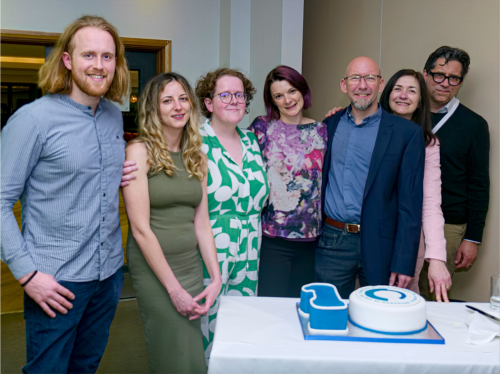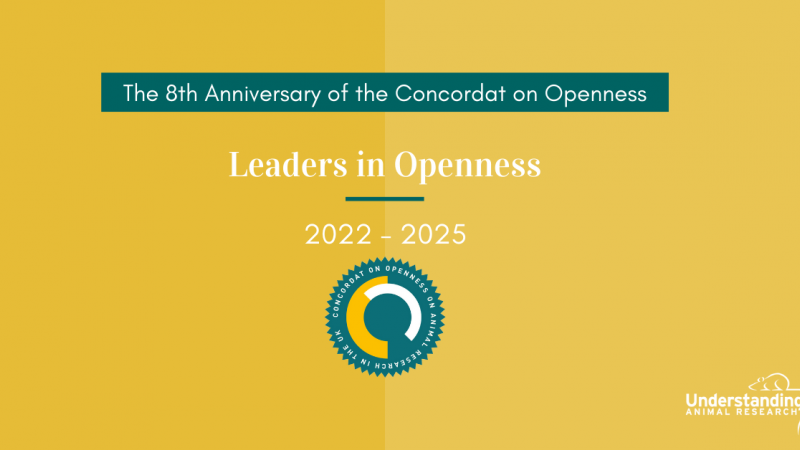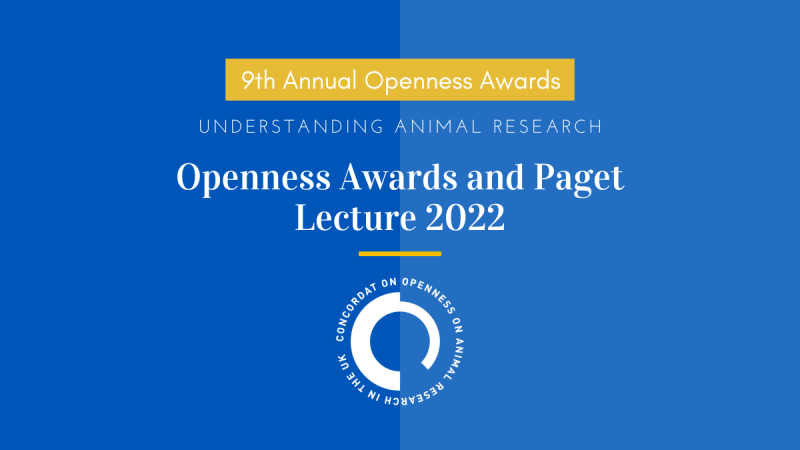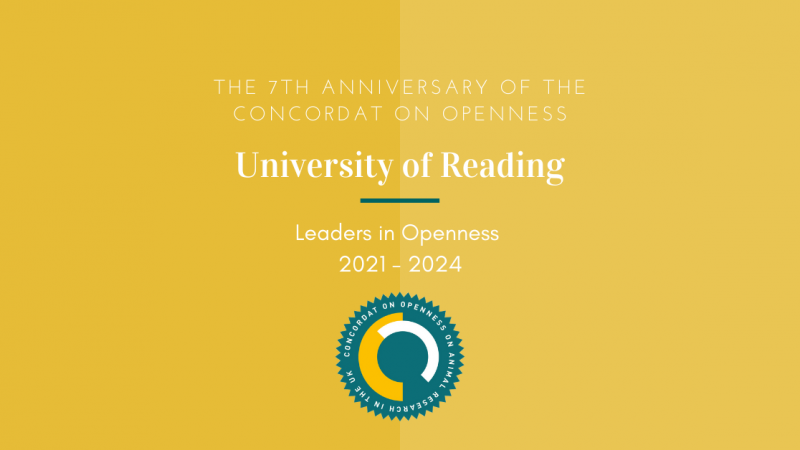Today (14 May 2024) is the tenth anniversary of the Concordat on Openness on Animal Research in the UK.
The Concordat on Openness was launched by Understanding Animal Research on 14 May 2014 as a publicly accountable pledge to commit its signatories to be open with the public about how, why and when they use animals in scientific, medical, and veterinary research. Since its launch, the openness movement has spread across the world, and ten years on, there are hundreds of organisations and thousands of individuals across the globe who are working to fulfil the aims of the Concordat and other openness agreements.
Earlier this month, we celebrated this important landmark with a conference dedicated to openness so that the worldwide openness community could come together, share ideas, and learn from each other. The success of the conference was undoubtedly due to the passion the individuals from this community have for animal welfare and providing the public with information on how and why this research takes place.
The first steps to openness
While the Concordat was officially launched in 2014, its journey began in 2012.
At the beginning of this century, the threats and harassment by animal rights activists had forced most scientists and animal technologists into silence. Only a very few were prepared to stand up and talk openly about their work with animals. Despite this, public polling had consistently shown that around 75% of the public in Great Britain could accept the use of animals in research. However, in 2012, public acceptance of animal research fell dramatically, down by ten percentage points, with 40% of respondents in surveys saying they did not have enough information to make up their minds.
Our sector responded with a radical approach: a first-of-its-kind public commitment to be open about how, when and why animals are used in UK bioscience.
In October 2012, the Declaration on Openness on Animal Research was signed by more than 40 organisations involved with UK bioscience. These organisations committed to developing a concordat setting out how they would be more open about the ways in which animals are used.
In 2013, UAR conducted two pieces of public research to make sure that the concordat would reflect and incorporate the views of the public and the wider research community. A public dialogue with Ipsos MORI helped us explore public expectations of openness and transparency on animal research. This was followed by an openness consultation where the public was asked for their views on whether the draft concordat proposals would help to increase openness within the UK biosciences sector.
On 14 May 2014 the Concordat on Openness was finally launched with 72 signatories. Nearly 10 years later, more than 125 organisations in the UK have signed the Concordat, committing themselves to helping the public understand why and how animals are used in science.
A global movement
To many in the sector, taking a proactive approach to animal research communications at first seemed like a radical and risky strategy, flying in the face of much received wisdom. But it quickly became apparent that when those who work with animals tell their own stories, misinformation is effectively combatted, and public reception is welcoming and positive. The openness movement soon became a global phenomenon with openness and transparency agreements based on the Concordat being launched across the world.
Spearheaded by the European Animal Research Association, along with local animal research advocacy groups and scientific societies, there are now seven openness agreements in Europe in addition to the UK Concordat. The Spanish led the way, followed by agreements in Portugal, Belgium, France, Germany, the Netherlands and Switzerland. In 2023, we celebrated 500 institutions being signed up to openness agreements in Europe. In 2021, New Zealand became the first country to launch an openness agreement outside of Europe, and last year an agreement was launched in Australia. An openness agreement in the US is also underway, and more are being planned in other countries. Taking all these countries into account, there are nearly 600 institutions signed up to agreements across the world.
What is next for openness?
Over the last decade we have seen fantastic initiatives from Concordat signatories that are designed to engage public audiences, internal stakeholders, and journalists with animal research, from the publication of detailed information on websites and social media to virtual and in-person lab tours, public engagement activities and events. But there is more work to be done. Openness means talking about challenging issues and while we have seen signatories take steps to talk about suffering and harms, more work is needed to communicate the limitations of animal research alongside the benefits. We hope to see increased engagement from organisations that support animal research through funding, breeding animals and membership groups, and from organisations with challenging commercial concerns such as the pharmaceutical industry and contract research organisations.
After ten years it would be easy to become complacent, but as the way we are exposed to information changes, openness has never been so important. Being open about animal research means building trust with the public, helping people understand that this is essential work that is done for the benefit of society. Being open about animal research helps build trust in all scientific endeavours.
Happy 10th birthday to the Concordat, and here’s to the next decade!
Openness highlights timeline
2012
Declaration on Openness on Animal Research launched
2013
Openness in Animal Research Public Dialogue
Openness Concordat Consultation
2014
Concordat on Openness on Animal Research in the UK launched
2015
First annual report from the Concordat published
2016
Transparency Agreement on the use of animals in scientific experimentation in Spain launched
Top Ten press release campaign launched (future campaigns led by UAR)
Concordat on Openness reaches 100 signatories
2017
UAR’s virtual lab animal tours launched
2018
Transparency Agreement on Animal Research in Portugal launched
2019
Transparency Agreement on Animal Research in Belgium launched
2020
92% of British public aware that animals are used in scientific research
First-ever citizen science project involving lab animals launched
2021
Transparency charter on the use of animals for scientific and regulatory purposes in France launched
Transparent Animal Testing Initiative in Germany launched
Openness Agreement on Animal Research and Teaching for New Zealand launched, the first agreement outside of Europe
Transparency Agreement on Animal Testing in the Netherlands launched
2022
Swiss Transparency Agreement on Animal Research launched
2023
Openness Agreement on Animal Research and Teaching in Australia launched
500 institutions in Europe have signed openness agreements
The US Animal Research Openness Initiative opens call for signatories
2024
Openness in Animal Research: A Conference to Celebrate a Decade of the Concordat
Last edited: 15 May 2024 15:25




